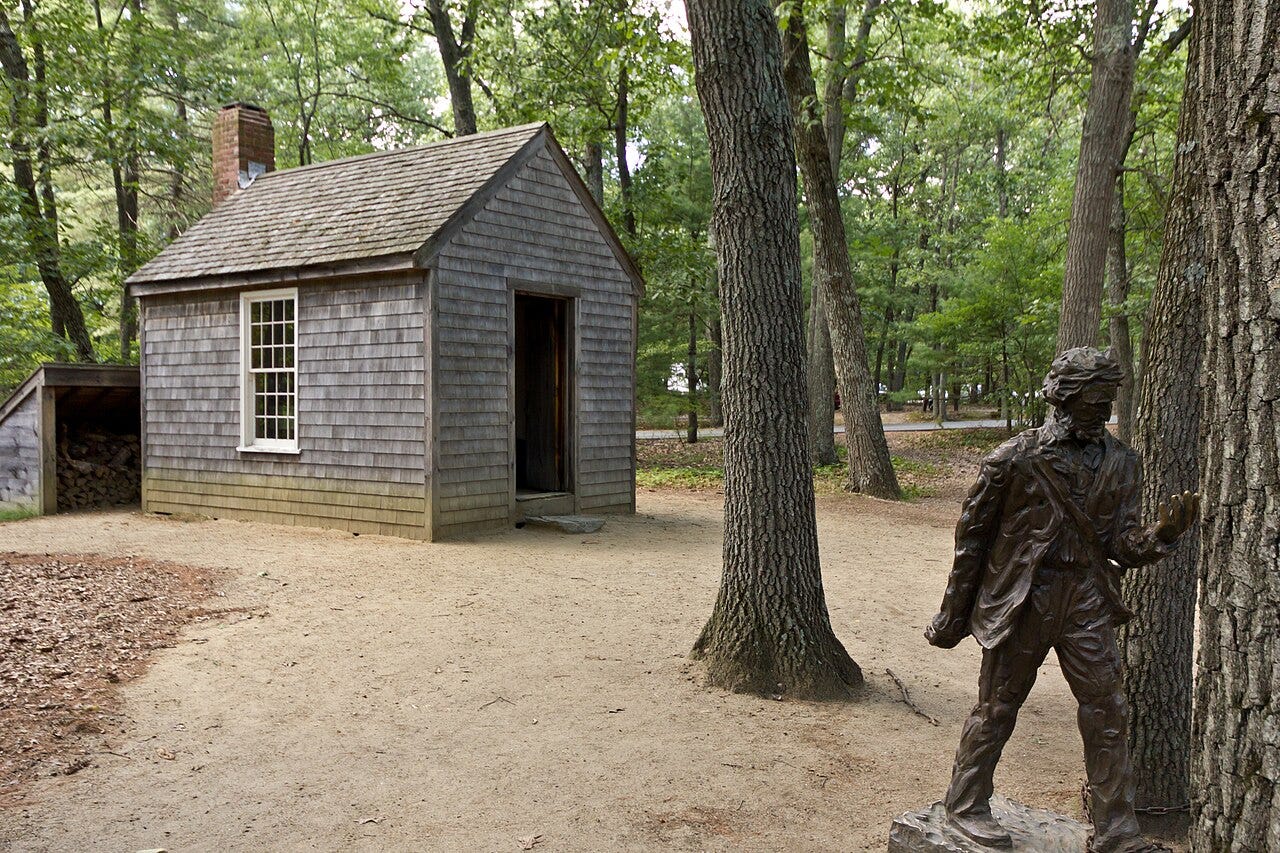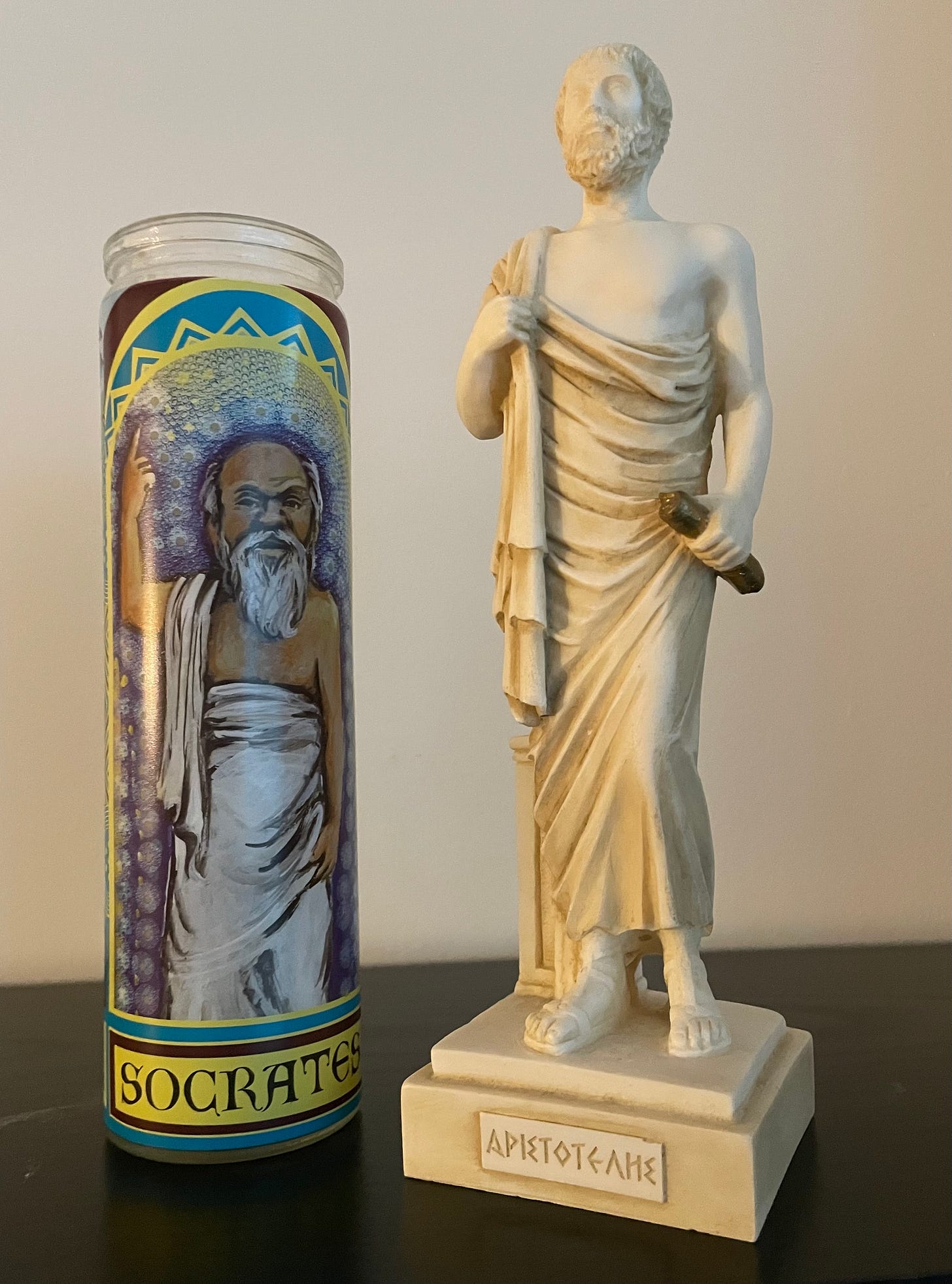When I was younger, on July 4th I used to read relevant excerpts from Henry David Thoreau’s 1854 Walden or his 1849 essay “Civil Disobedience” and reflect on what those passages meant to me. I’ve adopted different activities in recent years to celebrate this day, but this time around I’d like to honor Independence Day by revisiting a couple of my favorite independence-related quotations from Walden.
The first one is from the chapter “Where I Lived, and What I Lived For”:
“When first I took up my abode in the woods, that is, began to spend my nights as well as days there, which, by accident, was on Independence Day, or the Fourth of July, 1845, my house was not finished for winter, but was merely a defence against the rain . . . . The upright white hewn studs and freshly planed door and window casings gave it a clean and airy look, especially in the morning, when its timbers were saturated with dew . . . . This was an airy and unplastered cabin, fit to entertain a travelling god, and where a goddess might trail her garments. The winds which passed over my dwelling were such as sweep over the ridges of mountains, bearing the broken strains, or celestial parts only, of terrestrial music. The morning wind forever blows, the poem of creation is uninterrupted; but few are the ears that hear it.”

Whether “by accident” or not, Thoreau started on July 4, 1845, a two-year sojourn at a small cabin he built near Walden Pond in Concord, Massachusetts. We can take this as a symbolic “stake in the ground” for independence. He started living in his rough-hewn, simple home before it was fully fortified against threats. But that very vulnerability speaks of dawn, inspiration, and the hope of youth embarking on life’s great adventure. Free of pretension, he is able to welcome the loftiest of visitors without regard for conventional trappings. I picture him thinking thoughts all his own and catching strains of a music more lovely to his ears than any some other man could make.
The second passage is from the chapter “Economy”:
“There are nowadays professors of philosophy, but not philosophers. Yet it is admirable to profess because it was once admirable to live. To be a philosopher is not merely to have subtle thoughts, nor even to found a school, but so to love wisdom as to live according to its dictates, a life of simplicity, independence, magnanimity, and trust. It is to solve some of the problems of life, not only theoretically, but practically. The success of great scholars and thinkers is commonly a courtier-like success, not kingly, not manly. They make shift to live merely by conformity, practically as their fathers did, and are in no sense the progenitors of a nobler race of men.”

I’ve been struck since I first read those lines at age nineteen how Thoreau contrasts what it means to be a philosopher versus acting like a scholar or professor of philosophy. The former is about getting out of your head and living well in practice in the world according to the wisdom you’ve earned through independent thinking. The latter suggests gaining prestige at the price of your mind by conforming to tradition or groveling at others’ feet.
Cue lyrics from Rush’s “Tom Sawyer,” which makes me think of Thoreau striding on his sturdy, independent legs through the woods and fields around Walden Pond:
“No, his mind is not for rent
To any god or government
Always hopeful, yet discontent
He knows changes aren’t permanent
But change is.”
More fundamental than political independence—both because of what’s needed to justify and defend political independence and because that, in turn, makes possible the pursuit of happiness—is intellectual independence. Being free to think for yourself and live a life of your choosing in light of the knowledge you achieve is central to pursuing and stocking your life with the values that make it worth living.
Which reading about independence gets you wondering?






As to wondering, I've always liked this quote from Ayn Rand: "The most selfish of all things is the independent mind that recognizes no authority higher than its own and no value higher than its judgment of truth." But Thoreau, Socrates, Aristotle, Nietzsche, Walter Kaufmann, and several other writers and thinkers have inspired me to wonder about human potential, too...
Beautiful and insightful post. Thank you.